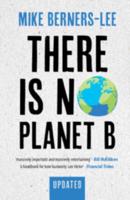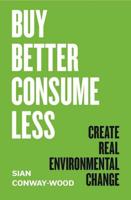Publisher's Synopsis
Your Shopping Superpower provides an insightful guide and strategies for shoppers to align the contents in their carts with their personal values.
Are there harmful toxins in your food and body care? Who makes the products you purchase and under what conditions? What impact does the production of these items have on the environment? If 70% of the U.S. economy is driven by consumer spending, then every purchase we make has a physical and social impact on the world. Unfortunately, our shopping choices can unintentionally contribute to climate change and social injustice. Many people wish they could do more to combat these unjust and unsustainable outcomes. So what is the connection between our purchases and this impact? Your Shopping Superpower explores this important question and offers a comprehensive guide that navigates toward positive and sustainable shopping practices by providing pragmatic tips, tools and revealing how our habits can help reduce climate change, support companies with equitable workplace conditions, and foster diverse, local businesses.
Broken into categories including People, Planet, Community, and Health, Diane Osgood expands on key issues regarding climate degradation, labor exploitation, products containing carcinogens and toxins, and the importance of supporting local, women-owned, and minority-owned businesses while covering an array of products that include food, fashion, gifts, household items, and personal care. Addressing shoppers' doubts about whether consumer choices truly have an impact and their concerns about costs and accessibility, Osgood shows how making these easy changes fosters happiness. With helpful diagrams and firsthand stories on climate and social injustice, Your Shopping Superpower informs and guides shoppers on how to:
- Implement one change per week
- Identify trustworthy certifications, rating systems, and apps
- Detect greenwashing and other misleading marketing
- Determine which purchases to switch for maximum impact
- Handle and approach choices that aren't easy or affordable
By changing what we buy, we can initiate the change in our economy's environmental footprint and social impact. To enact change, we must start simple; it's about progress, not perfection.






